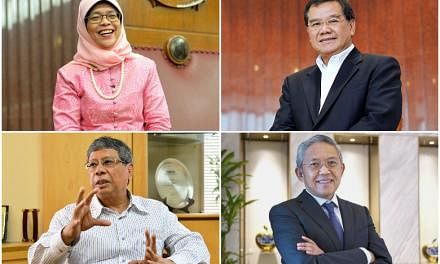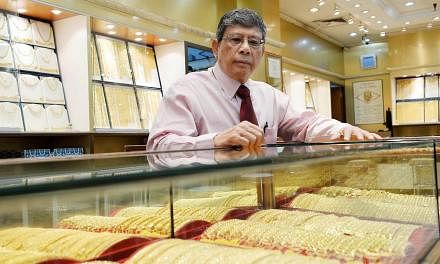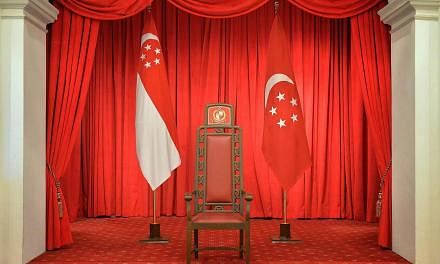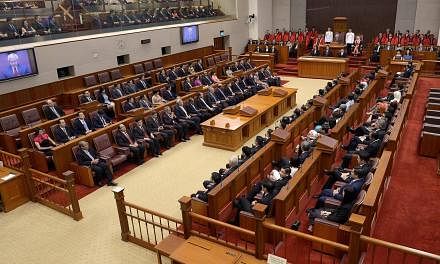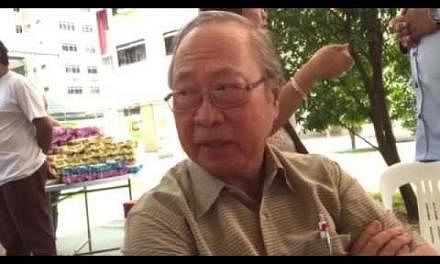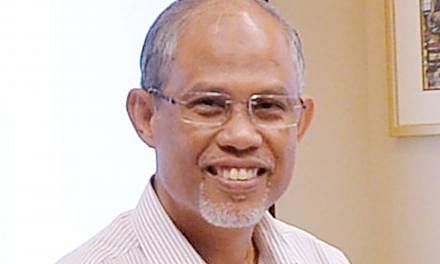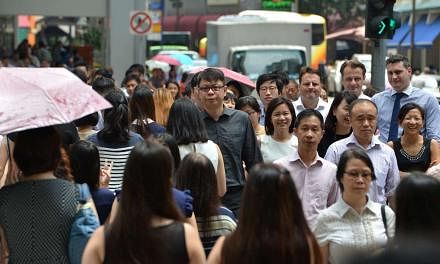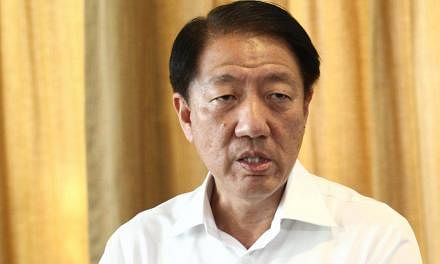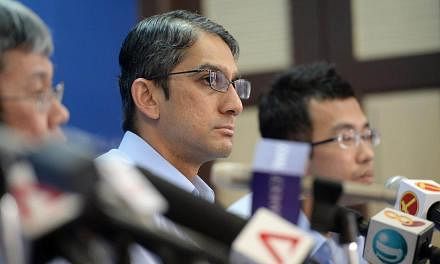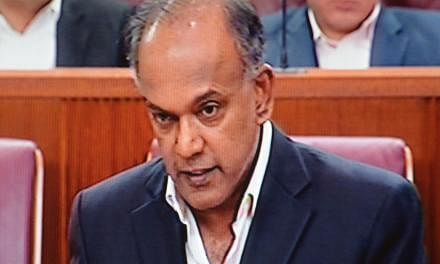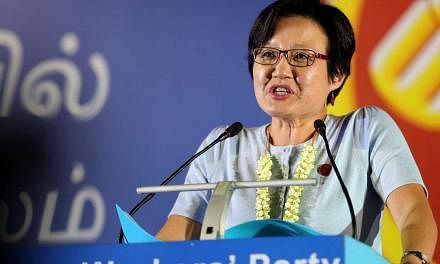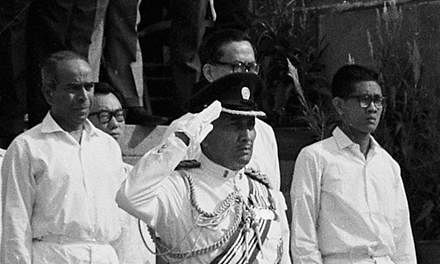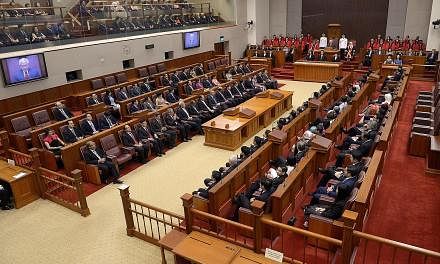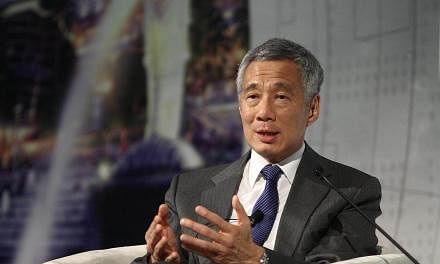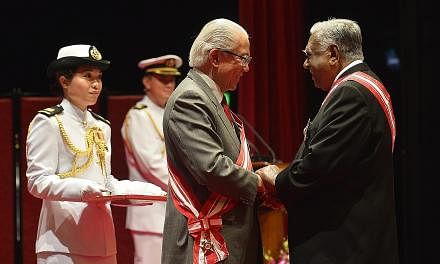This is the full speech delivered by Dr Yaacob Ibrahim in Parliament on Monday (Nov 7) during the debate on the proposed changes to the elected presidency:
Madam Speaker,
I agree with the key changes to the elected presidency or EP.
I agree on the need to change the qualifying criteria so that the potential candidate has the experience to deal with how our sizeable financial resources should be managed.
I also agree that given the complexity of the issues facing our government that a strengthened Council of Presidential Advisors, or CPA, and the closer working relationship between the CPA and EP will ensure the best decisions for the sake of our nation.
Finally, the need to ensure that every community has the chance to see one of its own becoming the EP underscores the very nature of our multiracial society. It very specifically endorses the view that this multiracial character of our society must also be represented in the highest office of the land. Personally, I would like to see this multiracial character of our society be a lived reality in all aspects of our society. Achieving this is an ongoing effort for which we must never let up. For now, I shall focus on how we seek to achieve this in the EP.
WHY SAFEGUARDING MINORITY REPRESENTATION IS KEY
Madam, one of the stated aims of the new EP changes is to ensure that every community has a chance to see one of its own becoming the EP. Yet the real challenge is to ensure minority representation in an electorate where the Chinese community dominates. Surveys and statistics have shown how despite all our efforts at forging a common Singaporean identity, the current reality in Singapore is that the tribal tendency remains a factor - people still tend to drift towards their own kind.
This finding has caused discomfort to some Singaporeans. I myself did not find it pleasant reading. It is also my sincere wish that one day, race will no longer matter. But for now, we cannot ignore the facts and trust that the better angels of our nature will surely prevail, especially on a matter as critical as the EP.
We had recognised such tribal tendencies in some of our policies, such as the ethnic integration policy or EIP in public housing. When that policy was implemented in 1989, there was some unease among Singaporeans, including our minorities. The policy seemed heavy-handed. Yet, over the distance of time, this policy has served the national interest well, by preventing ghettoes in our public housing and enabling integration to take place.
I myself struggled with this policy in my younger days, but I have come to recognise that we need such policies to avoid the pitfalls of other societies that have ignored the human tendency to behave in tribal ways and insisted on seeing the world as they sincerely believed it to be. These societies have suffered for it. The integration of different communities into a cohesive and united Singapore society requires deliberate policy tweaks and constant work.
We are now introducing a similar policy tweak. While being presented euphemistically as a circuit breaker in successive elections of the EP, it is a tweak that guarantees a chance for a minority to become the EP. In typical Singapore fashion, if this works, we will see, over a sufficiently long time, representation from the various communities as EPs, reflecting the racial breakdown of our society.
ADDRESSING SENTIMENTS ABOUT THE MINORITY SAFEGUARD
The support for this proposed policy tweak has not been unanimous. Some argue that Singaporeans are mature enough to know whom to elect in order to maintain a harmonious society. Then there are also some who feel that such a move goes against the strain of meritocracy as they believe in, and in fact is really another example of doing too much in helping the minorities in Singapore. Where do ordinary Singaporeans lie in this spectrum of views?
The recent study by Channel News Asia and the Institute of Policy Studies found that given a choice, most Singaporeans prefer someone of the same race as President. More than 80 per cent of respondents of Malays and Indians said that they would accept a Singaporean Chinese as President. However, less than 70 per cent of Chinese respondents found a Singaporean Malay or Indian to be acceptable as President.
Furthermore, according to an MCI survey, when asked if they think we should have a minority as an EP, the vast majority including the Chinese agree wholeheartedly. However when presented with the circuit breaker option, the majority baulked. Why is this so? We can only guess. These studies confirm the concerns I had when this idea was first mooted.
I was concerned because it was putting the minority communities, including my community, in the spotlight again. To understand this is to put yourself in the shoes of the minority community, especially the Malays, and see it from our perspective over the 50-year trajectory of nation building. We have frequently been in the spotlight for the last 50 years. After separation from Malaysia, there were difficult questions for all communities, and more so for the Malay community in this new nation. At the same time, we faced socio-economic challenges. We lagged behind in education. Higher divorce rates, higher crime rates, and more recently, Islam has been associated with the terrorism threat. The situation, of course, has been improving, because of the hard work by the community and the government's support, and we must continue to forge ahead. But it has not been all smooth sailing.
Against this backdrop, I was worried that this move, to ensure that there will be a Malay president, will be seen as the government going out of its way to help a minority community that has lagged behind. I was worried that a Malay candidate may not be able to command the respect of all Singaporeans.
So I will be the first to say that we must never compromise on the qualifying criteria. If we are to carry out the proposed tweak to ensure minority representation, we must do so because it is good for Singapore and Singaporeans, and not just for the minority communities, and certainly not for the Malay community. The candidate, minority or otherwise, must meet the same, exacting requirements, and therefore be seen to be good for all Singaporeans.
THE VIEW FROM THE MALAY COMMUNITY
Let me also recognise that this desire to see a president from one of our own, especially for the Malays, is an emotive one. Among the older Malays, having lived under a Malay president, it is understandable that they yearn for one after a very long time. We have not had a Malay president for 46 years. Our first president, the late Mr Yusof Ishak died in office on Nov 23, 1970. An entire generation of Malays have grown up without ever having a Malay president. Furthermore, the younger generation has grown up with meritocracy as the basis of how our society is organised. And hence among younger Malays, there seem to be a bit of reluctance to have the circuit breaker. Yet in closed door discussions, many would raise their hands in wanting to see a Malay president. But very few would say this publicly.
Some would argue that the race of the candidate should not matter. That the most important thing is whether that person can do the job, and do it well. But to have a qualified Malay to do the job speaks to a long-held desire among the community to see one of us serving in the highest office in the land. It is about our place in this nation that we call home.
Malays, more so than other communities, look forward to seeing one of their own recognised for excellence and leadership. So when Natasha Nabila topped the PSLE in 2007, and in fact broke the record for the highest PSLE scores till then, the community was overjoyed. In previous years, a Chinese student may have topped the PSLE and yet we did not see fireworks or celebrations in the Chinese community.
For me, it speaks to a personal experience. In 1968, we had our first Malay President's Scholar, Mr Mohd Ismail Ibrahim, my eldest brother. That same year, my brother's school mate from RI, Mr Christopher Catherasoo was also a winner of the President's Scholarship.
The celebration by both communities could not have been more stark. When we send my brother off at the airport, and this was Paya Lebar airport, my entire clan turned up and some had even camped overnight at our place. Christopher, on the other hand, was accompanied by only his immediate family. The airport was swamped by Malays! It was a moment of celebration.
The truth is that we do not have many Malays in key positions of power and leadership. Having one being a president is not just nice but timely. But this cannot, and must not, be the reason why we should have a Malay president. The Malay candidate must meet the same exacting standards as demanded of candidates from the other communities. My reason for raising these examples is for the other communities to better understand the psyche of the Malay community and the historical burden that we have carried where we have been perceived as an underachieving community.
WHAT IS NEEDED OF ALL CANDIDATES?
I now come to my final point, which is about the quality of the candidates. There are two equally important roles of the EP - ceremonial and custodial. I fully support both roles especially that of a unifying figure representing all Singaporeans. In this regard it is the character of the candidate that I most worry about. After all, we have seen very successful businessmen who are also crooks. To have stayed honest is too low a bar.
How do we guarantee that that candidate will make decisions in the best interest of all Singaporeans? Indeed, what makes a good president for all Singaporeans? While we have debated much about the qualifying criteria, especially the candidates' experience in managing large organisations, equally important are the values and ethos of the candidates.
(This part in Malay)
CONCLUSION
Madam Speaker, We must look for good, honest, hardworking, selfless individuals who are prepared to do what is right for Singapore. To be president is no mere job. It is a calling to serve all Singaporeans. It demands integrity, selflessness and the desire to always promote the common good. So regardless of the candidate's race, they must all be held to the same high standards of character and values. We must never compromise on standards. We do not want, and we cannot accept, tokenism. We want a president to command the respect of all Singaporeans.
I therefore stand by the proposed enhancements to the Elected Presidency framework, because, first and foremost, these enhancements serve to ensure that the best qualified person who reflects the values and ethos of our nation will be elected to the highest office of our land.
Thank you.

